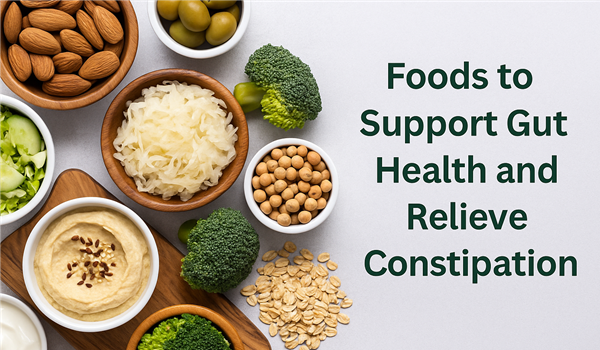Constipation diet gut health foods

Patient Information Leaflet: Foods for a Healthy Gut and Relief from Constipation
Kensington Medical Centre – Belfast
⸻
Why Gut Health Is Important
A healthy gut microbiome — the mix of bacteria in your digestive system — helps with digestion, nutrient absorption, immune health, and bowel movements. When your gut is in good shape, you’re less likely to suffer from constipation and other digestive issues.
⸻
What Is Constipation?
Constipation means you’re not passing stools as often as usual, or your stools are hard, dry, and difficult to pass. It can be uncomfortable and may lead to bloating or stomach pain.
⸻
Foods That Support Gut Health and Prevent Constipation
1. High-Fibre Foods
Fibre adds bulk to your stool and helps it move through your digestive system.
• Soluble fibre: absorbs water to soften stools
Examples: oats, apples, pears, carrots, beans
• Insoluble fibre: adds bulk and speeds up movement
Examples: wholegrain bread, bran, brown rice, nuts, seeds, vegetables
2. Probiotic Foods
Contain good bacteria that help balance the gut microbiome.
• Live yoghurt (look for “live cultures”)
• Kefir
• Sauerkraut, kimchi
• Miso, tempeh
3. Prebiotic Foods
Feed the good bacteria in your gut.
• Bananas (especially slightly green), onions, leeks, garlic
• Asparagus, artichokes, oats, barley
4. Hydrating Foods and Fluids
Water helps fibre work better and keeps stools soft.
• Drink 6 glasses of water a day
• Herbal teas
• Fruits and vegetables with high water content: cucumber, melon, oranges
⸻
Foods and Habits to Avoid
• Low-fibre diets – processed and fast foods often lack fibre
• Too much dairy – in some people, it can slow digestion
• Sugary snacks and drinks – can reduce healthy gut bacteria
• Caffeine and alcohol – may cause dehydration if consumed in excess
⸻
Helpful Tips
• Increase fibre gradually to avoid gas or bloating
• Combine fibre with fluids for best effect
• Aim for at least 5 portions of fruit and veg a day
• Be active – regular movement helps your bowels work better
• Don’t ignore the urge to go to the toilet
⸻
When to See a Doctor
See your GP if you:
• Haven’t had a bowel movement for several days
• Have blood in your stool or severe stomach pain
• Are using laxatives regularly
• Notice a sudden change in your bowel habits
Your doctor may check for underlying causes and offer dietary advice or treatments.
⸻
For more information, visit www.nhs.uk/conditions/constipation
This leaflet is for general information only. Please speak to your healthcare provider for advice specific to you.
Medical Disclaimer
The dietary advice and information provided in this leaflet are for general guidance and educational purposes only. They are not intended to replace personalised advice, diagnosis, or treatment from a qualified healthcare professional.
If you have a medical condition, are taking medication, are pregnant or breastfeeding, or have specific dietary needs or food allergies, you should consult your GP, dietitian, or another healthcare provider before making significant changes to your diet.
Following general dietary recommendations without proper medical supervision may not be suitable for everyone and could result in unintended health effects. Always seek individualised medical advice for your personal health circumstances.
Page created: 01 June 2025